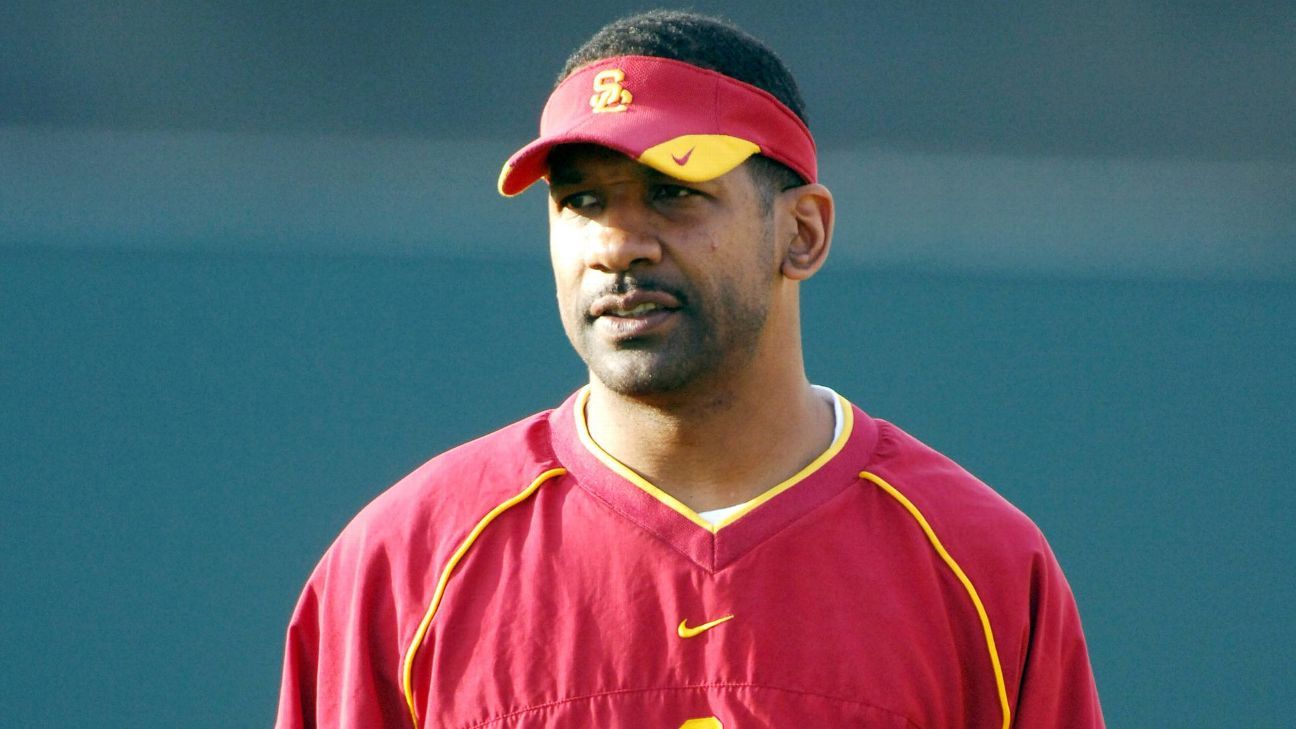The NCAA has settled a defamation suit filed by former USC football assistant coach Todd McNair, whom it accused of violating ethical conduct rules during its investigation into whether former Trojans star Reggie Bush and his family received improper benefits while playing in college, sources told ESPN on Wednesday.
The settlement was reached through court-ordered mediation, which began two weeks ago. The agreement comes more than a decade after McNair sued the NCAA in a California court, alleging NCAA officials “arbitrarily and capriciously decided to ruin [his] career to further their own agenda.” He sought damages for libel, slander, breach of contract and negligence.
Financial terms of the settlement weren’t immediately available. McNair, 55, is now the running backs coach for the NFL’s Tampa Bay Buccaneers.
The resolution of McNair’s long-standing lawsuit against the NCAA — which was filed on June 6, 2011 — comes while Bush is lobbying for the return of the Heisman Trophy he won in 2005 while playing at USC.
“It is my strong belief that I won the Heisman trophy ‘solely’ due to my hard work and dedication on the football field and it is also my firm belief that my records should be reinstated,” Bush said in a statement last week, as student-athletes across the country began profiting off their name, image and likeness.
Bush returned his Heisman Trophy after a four-year extra-benefits investigation determined that he and family members, while he was a student-athlete, accepted cash, travel expenses and a home in the San Diego area where his parents lived rent-free for more than a year and were provided $10,000 to furnish.
Sanctions from the NCAA investigation, which came in 2010, mandated that Bush disassociate from USC and included a two-year postseason ban for the school, 14 vacated victories (including the 2004 BCS national championship) and the loss of 30 scholarships. His 10-year disassociation period ended in June 2020.
In February, a three-judge panel of the Second Appellate District Court in Los Angeles denied the NCAA’s appeal of a trial court’s declaratory judgment and its order granting McNair’s motion for a new trial. The appeals court also ordered the NCAA to bear the costs of the appeal.
In May 2019, a jury in Los Angeles ruled in favor of the NCAA following a three-week defamation trial stemming from McNair’s alleged involvement in the Bush extra benefits scandal. But then Los Angeles County Superior Court Judge Frederick Shaller issued an order for a new trial, citing insufficient evidence to justify the original verdict and implied bias from a juror.
The NCAA Division I Committee on Infractions issued a 2010 report that concluded McNair “knew or should have known” that Bush was engaged in rules violations with a would-be agent while playing for USC, and McNair “provided false and misleading information to the enforcement staff.” As a result, it issued McNair a one-year show-cause penalty and one-year recruiting ban that McNair’s attorney, Scott Tompsett, argued ended his career as a high-level coach.
The NCAA ruled that McNair had knowledge that Bush was involved in NCAA rules violations by receiving improper benefits from Lloyd Lake, a convicted felon, and his associate Michael Michaels, who had formed a sports agency and marketing company.
The NCAA’s Committee on Infractions said it was “particularly troubled” by a 2-minute, 32-second phone call between McNair and Lake that occurred at 1:34 a.m. on Jan. 8, 2006. McNair claimed he didn’t remember the nature of the call; Lake said he phoned McNair to intercede with Bush to get him to stick with his promise to sign with his agency.
The NCAA also cited McNair and Lake having a mutual friendship with comedian and actor Faizon Love; a photograph of McNair, Love, Lake and Michaels taken on Michaels’ phone; and three 1-minute telephone calls McNair made to Lake on March 29, 2005.
“That the two men may have spoken, may have had a celebrity friend in common, and posed for the same photograph are manifestly not evidence that McNair had knowledge of’ the agency and improper benefits, which is the only way his denials would violate NCAA rules,” the appeals court wrote in its ruling.


